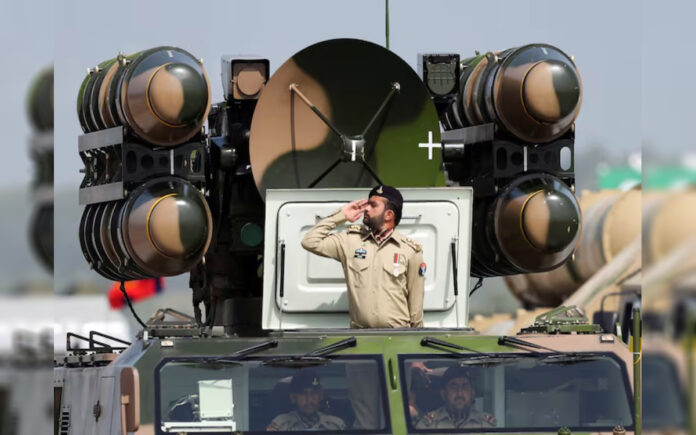Washington: A senior White House official on Thursday warned that nuclear-armed Pakistan is advancing its long-range ballistic missile capabilities, which could eventually enable it to target areas far beyond South Asia, presenting an “emerging threat” to the United States. Deputy National Security Adviser Jon Finer’s statement highlighted the growing concerns regarding Pakistan’s missile program, further illustrating the deteriorating relationship between Washington and Islamabad since the 2021 U.S. troop withdrawal from Afghanistan.
Finer’s comments raised questions about the shifting objectives of Pakistan’s nuclear and missile programs, which were traditionally aimed at countering India, a neighboring rival with which Pakistan has fought three major wars since their independence in 1947. Speaking at the Carnegie Endowment for International Peace, Finer said that Pakistan has been pursuing increasingly sophisticated missile technologies, including long-range ballistic missile systems and equipment capable of testing significantly larger rocket motors.
“If these trends continue,” Finer said, “Pakistan will have the capability to strike targets well beyond South Asia, including in the United States.” He noted that the number of nuclear-armed states with missiles capable of reaching the U.S. is small and typically adversarial, listing Russia, North Korea, and China. “So, candidly, it’s hard for us to see Pakistan’s actions as anything other than an emerging threat to the United States,” he added.
Finer’s remarks came one day after the U.S. imposed a new round of sanctions against Pakistan’s ballistic missile development program, targeting, for the first time, the state-run defense agency that oversees the program. Pakistan’s embassy did not immediately respond to a request for comment.
Islamabad has long characterized its nuclear weapons and missile programs as defensive measures aimed at deterring aggression from India and preserving regional stability. However, U.S. officials, speaking anonymously, explained that the concerns surrounding Pakistan’s missile program are primarily driven by the increasing size of the rocket engines being developed. They also noted that the threat posed to the U.S. remains a decade or more away.
Finer’s comments were meant to urge Pakistani officials to address the rationale behind the development of more powerful rocket engines, an issue they have yet to acknowledge. “They don’t acknowledge our concerns. They tell us we are biased,” one U.S. official said, pointing to Pakistan’s repeated assertion that the sanctions on its missile program are intended to hinder its ability to defend against India.
The senior U.S. official also expressed frustration that despite repeated discussions with top Pakistani officials, the concerns have been met with denial. The historical partnership between the U.S. and Pakistan on development, counter-terrorism, and security makes Washington’s questioning of Pakistan’s motivations all the more significant. “That makes us question even more why Pakistan will be motivated to develop a capability that could be used against us,” Finer said.
Also Read | Fighters from Myanmar Civil War Aggravate Ethnic Conflict in Manipur
Pakistan’s growing ties with China and its criticism of the U.S.’s strengthening relationship with India have added complexity to the situation. Beijing has been a major source of support for Islamabad’s ballistic missile program, with some Chinese entities having faced U.S. sanctions for their involvement.
Having conducted its first nuclear test in 1998, two decades after India, Pakistan has since developed an extensive arsenal of ballistic missiles capable of carrying nuclear warheads. According to the Bulletin of the American Scientists, Pakistan is estimated to have around 170 nuclear warheads in its stockpile.
Also Read | FAA Bans Drone Flights Over Key Sites in New Jersey, Expands Restrictions to New York
U.S.-Pakistan relations have fluctuated significantly over the years, with periods of strong collaboration during the Cold War and in the fight against al Qaeda after the 9/11 attacks. However, relations have also been strained due to issues such as Pakistan’s military coups, its support for the Taliban’s rule in Afghanistan, and its nuclear weapons program.
Finer’s speech, which directly linked concerns about Pakistan’s missile program to a potential future threat to the U.S. homeland, was a significant development that surprised many experts. Michael Kugelman, deputy director of the Wilson Center’s Asia Program, described the speech as “mighty dramatic,” considering the rare public acknowledgment of the long-term implications of Pakistan’s missile advancements.



